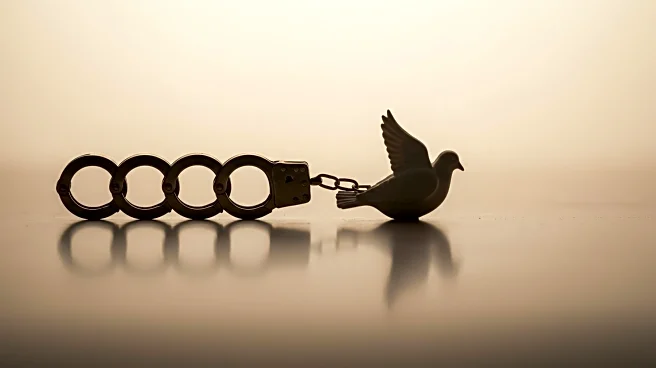What's Happening?
In Norwich, police detained 13 individuals during a protest against the proscription of Palestine Action, a group recently banned as a terrorist organization by the UK government. The protest took place outside City Hall, where participants displayed placards supporting the group. The arrests were made under Section 13 of the Terrorism Act 2000, which prohibits support for proscribed organizations. Five of the arrested individuals were taken for further questioning, while the remaining eight were released after providing their details. This action follows a broader crackdown by the Metropolitan Police, which has resulted in over 700 arrests since the group's ban in July, with more prosecutions expected.
Why It's Important?
The arrests in Norwich are part of a larger narrative concerning the UK's approach to handling groups deemed as security threats. The designation of Palestine Action as a terrorist organization has sparked debate over the limits of protest and free speech. Critics, including prominent human rights organizations, argue that such measures may infringe on civil liberties and suppress legitimate dissent. The legal ramifications are significant, as those convicted of supporting the group face severe penalties. This situation reflects broader global discussions on the balance between security and human rights, with potential implications for how similar cases are managed in other democratic societies.
What's Next?
The legal challenge against the proscription of Palestine Action is set to proceed, with potential implications for future protest-related legislation. The outcome could influence how authorities balance security concerns with the right to protest. Meanwhile, the Metropolitan Police's continued focus on prosecuting supporters of the group suggests that this issue will remain in the public eye. The involvement of international human rights organizations may also lead to increased scrutiny of the UK's policies and practices in this area.









